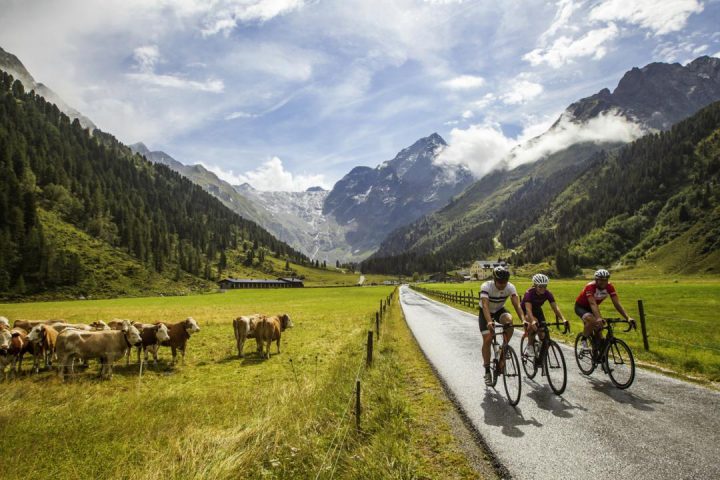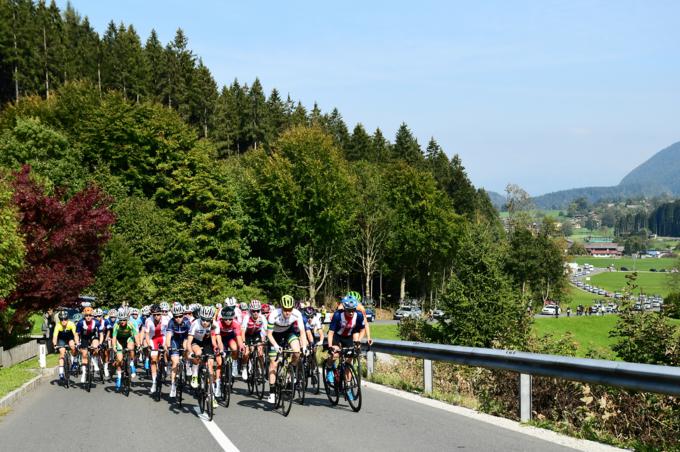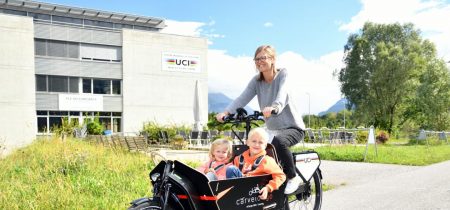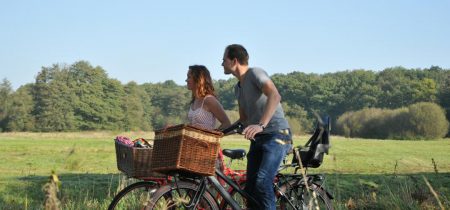Uniting Elite and everyday cycling
 Competitions and events can play an instrumental role in the promotion of cycling. Pictured, cycling in Innsbruck, Austria © Innsbruck Tourismus Erwin Haiden
Competitions and events can play an instrumental role in the promotion of cycling. Pictured, cycling in Innsbruck, Austria © Innsbruck Tourismus Erwin Haiden Competitive and utility cycling are sometimes perceived as belonging to two different worlds. Nevertheless, elite cycling events also have a wider objective of supporting the development of cycling in all forms, and important alliances and collaborative initiatives are being developed to promote the greater use of bicycles on an everyday basis.
By Union Cycliste Internationale (UCI)
Elite cycling and cycling advocacy are natural partners. A key pillar of ensuring the future development of cycling as a sport is ensuring that a positive environment for cycling exists across the globe. Roads must be accessible and safe for riders of all ages and abilities, while a culture and passion for cycling encouraged. National Federations, cycling teams, event organisers and athletes across the world are increasingly uniting on pivotal issues such as road safety, physical activity promotion and active mobility. Indeed, no matter the reason for being out on the road – be it to train for a professional stage race, or to cycle to work – all cyclists are entitled to ride in safety.
Elite Ambassadors
Given their access to the media and fans, elite riders are well placed to speak out as advocates in favour of improving conditions for cycling. By developing strategic partnerships with athletes and teams, it is possible to achieve maximum impact for key advocacy messages. High-profile athletes will often have considerable influence on issues such as road safety or bicycle lane development in their home country, region or city.
Competitions as platforms
Bicycle races – no matter the cycling discipline – are ideal platforms for sharing messaging to promote cycling in all forms. The media and public attention generated by elite events can be used to catch the attention of political leaders to, for example, make the case for greater investment in everyday cycling.
To this end, side events can be organised around elite competitions with the direct goal of advocating for more cycling in all its forms. Termed Cycling for All events, races and activities for a wide cross-section of the population can be organised on race day or afterwards as a legacy of the elite event. Event organisers are becoming increasingly aware of the need to achieve a wider socio-economic impact and ensure a lasting legacy for the local population.
The following examples provide a summary of initiatives which have been organised by UCI Bike Cities and Regions around Elite UCI cycling competitions:
- 2017 UCI Road World Championships in Bergen (NOR)
- 2018 UCI Cyclo-Cross World Championships in Valkenburg (NED)
- 2018 UCI Track Cycling World Championships presented by Tissot in Apeldoorn (NED)
- 2018 Tour de Yorkshire (UCI Europe Tour stage race)
- 2019 UCI Cyclo-Cross World Championships

- The passion for cycling at elite events such as the 2018 UCI Road World Championships Innsbruck-Tirol can support wider everyday cycling promotion © Simon Wilkinson
The UCI Road World Championships – creating a cycling legacy
Each autumn, as the road cycling season comes to a close, the UCI Road World Championships take place. One of the highest profile cycling competitions, the ‘Worlds’ sees the best cyclists on the planet compete for the rainbow jersey. With all the media and and public attention on the event, it is also a perfect opportunity to promote cycling for all. Host cities and regions get into the spirit of things by hosting cycling side-events in the run up to – and alongside – the Worlds.
During the 2017 World Championships in Bergen, Norway, mass participation activities allowed the public to ride the course of the event, local children were led along the final kilometres of the circuit by former World Champion Thor Hushovd, and elderly residents were taken around the course in rickshaw bikes – ensuring all could enjoy the celebration of cycling.
In the two years running up to the Championships, 4,500 children took part in a child cycle training programme organised in partnership with local schools. At the same time, 160 teachers in schools and nurseries became ambassadors for cycling, helping inspire children to become involved in the Championships and use their bikes more often.
In 2018, the UCI Road World Championships were hosted in Innsbruck-Tirol, Austria. During the opening day, Austria celebrated its national car-free day with a Bike Parade – open to the public – travelling through Innsbruck, finishing in front of the Hofberg Imperial Palace. Meanwhile, during the event, 400 school children had the chance to try a new pump track as well as BMX and slackline courses in the centre of the city, under the guidance of professional instructors.
British Cycling: Let’s Ride
Across the UK, the novel Let’s Ride programme is organised by British Cycling. The project closes city streets to traffic and organises bicycle festivals to inspire people to try cycling in a traffic-free environment. By providing a day of cycling promotion activities, the project aims to encourage more people to cycle more often, in line with British Cycling’s wider strategic ambitions.
In Denmark, the Danish Cycling Union champions Cycling for All in various ways.
Alongside the Danish Gymnastics and Sports Associations and the Danish Nature Agency- the Danish Cycling Union is a member of the On Trail project. The project is designed to ensure the development of a sustainable mountain biking track network across the country. On Trail has developed a comprehensive bank of information on sustainable and environmentally-responsible off-road cycling trails, and established a portal (accessible online and via an app) of information on trails across Denmark.





